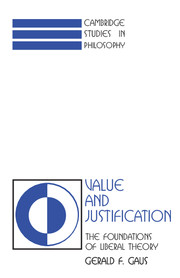Summary
The core claim of the Affective-Cognitive Theory of value is that value and the emotional side of life are intimately related. This in itself is not particularly controversial; it is a view widely shared by “subjectivists” and “objectivists” alike. The Affective-Cognitive Theory of value, however, advances a much more controversial thesis: that intrinsic valuings are emotional dispositions. Yet, although controversial, it is by no means radically new; indeed, in one version or another it has been one of the dominant theories in twentieth-century axiology. However, emotional theories of value are only as strong as the accounts of emotion on which they are based, and I believe that these accounts have been inadequate. My aim in this chapter, then, is to defend the outlines of an empirically (psychologically) and conceptually sound theory of emotion, which will provide the foundation for the analysis of value in the remainder of Part I.
Exploring the theory of emotion in some detail, this chapter examines such difficult problems as the intentionality of emotional states, the way in which emotion rests on beliefs, and how emotional states can be said to be rational or irrational. Confronting these problems at the outset of a work on value theory and moral justification – which, by the last chapter discusses the social contract and liberal theory – will no doubt seem surprising to many readers. It is certainly highly atypical. Nevertheless, these preliminary investigations are necessary for the arguments of later chapters.
- Type
- Chapter
- Information
- Value and JustificationThe Foundations of Liberal Theory, pp. 25 - 79Publisher: Cambridge University PressPrint publication year: 1990

